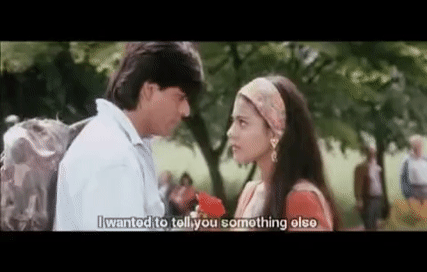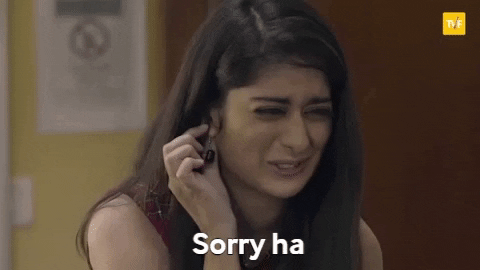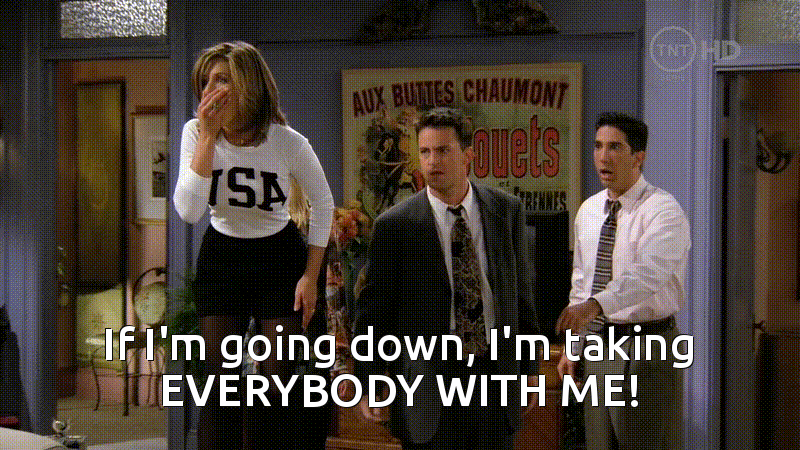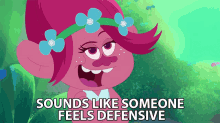Hello ji,
A few years back, a male colleague and I worked together in the same team, in almost exactly the same role. I would notice a lot of differences in the way we handled things and truly learned a lot from him in the process.
Here is one difference, though, that only occurred to me years later: Not only was our general approach to people and problems different, the emails we wrote were very different too.
For instance, if both of us had to write an email informing the team about the rescheduling of a meeting, his would go a bit like this:
Today's meeting is now rescheduled to 5pm.
Best,
<His Name>
Here is how I would convey the same information:
Dear all,
I regret to inform you that today's meeting - originally scheduled for 2pm - has now been rescheduled to 5pm. The venue will remain the conference room. The delay is due to a last-minute unforeseen engagement that the boss has. Apologies for the inconvenience caused. Please feel free to reach out to me for any clarifications.
Warm regards,
Mahima
In other words, I would bend over backward apologizing for something that probably did not need an apology at all. My emails would be full of ‘I am sorry’, and ‘I regret’, and ‘I apologize’ - when I truly had nothing to be sorry about.
So this week, I decided to take a look at the very different approaches men and women have when it comes to apologies.
How men apologize (if you can even call it that)
At the height of his fame and success, Hugh Grant was accused of soliciting from a prostitute. His public 'apology' went: “You know in life what’s a good thing to do and a what’s a bad thing, and I did a bad thing. And there you have it.”
Thank you for spelling it out for us, Hugh - didn’t see the apology that was promised anywhere in this, but ok.
In 2018, American YouTuber Logan Paul came upon a suicide victim's corpse while shooting a vlog in Japan. Instead of turning his camera off, he proceeded to film the body, while cracking jokes at the expense of the victim. When asked to apologize, he said, “I didn't do it for views. I get views. I did it because I thought I could make a positive ripple on the internet, not cause a monsoon of negativity.”
I suppose this is the point where we thank Logan for his selfless service to all humanity.
Last month, Yuvraj Singh was arrested (and then immediately released on bail) for using a casteist slur against a young teammate during an Instagram Live with another senior member of the team. His apology: “I understand that while I was having a conversation with my friends, I was misunderstood, which was unwarranted. However, as a responsible Indian I want to say that if I have unintentionally hurt anybody's sentiments or feelings, I would like to express regret for the same.”
Somehow that left me feeling like we are the ones who should be apologizing to Yuvraj for our unwarranted misunderstanding of the poor man’s casteism.
When Louis CK was accused by several women of masturbating in front of them, he made this statement: "At the time, I said to myself that what I did was O.K. because I never showed a woman my d##k without asking first, which is also true. But what I learned later in life, too late, is that when you have power over another person, asking them to look at your d##k isn't a question. It's a predicament for them. The power I had over these women is that they admired me."
An article in NewsWeek summarized it best when they wrote: “He had space to call his d##k a 'predicament'. But the words 'sorry', 'apology', or 'apologize' didn't make it in.”
Hollywood producer Harvey Weinstein led the MeToo charge with over 80 women having come out with sexual misconduct and rape allegations against him at last count. His 'apology', much like his crimes, set the tone for other men to follow throughout the MeToo movement: “I came of age in the 60s and 70s, when all the rules about behavior and workplaces were different. That was the culture then.”
Well, I suppose that settles it then. The 70s raped all those women, not Harvey.
“Somehow, men have trouble saying these simple words”
Pia had recently joined as Team Leader in a new job. The team was in the middle of an ongoing failure.
"I realised the the problem was impossible to be solved in isolation - meaning the component my team owned was only a very small piece of the puzzle. In fact, I could see that strengthening one component in isolation would just lead the structural load to shift to the next weakest component - which was a very expensive part. I prepared a proposal to request all teams to make some changes that would holistically solve the problem, and sent it to my boss. It was like talking to a wall."
Six months later, Pia got called into a meeting, for solving the failure on the expensive component, exactly as she had predicted.
"Instead of acknowledging I was right all along and apologising, my boss launched into a tirade about how I failed to convince him when I knew this was going to happen."
Pia recalls another instance where a man who owed her an apology, went on the offensive instead.
"A junior engineer reporting to someone else was working on a presentation under my guidance. While I handheld him till the last step, he failed to follow the instructions I gave in front of the clients and it caused the company a lot of embarrassment. Later, I hauled him up for it. Instead of apologising for his callousness, he started blaming the data storage systems. Then he tried to pass the blame on another colleague who he had ‘delegated’ his own task to. I gave him a piece of ny mind, called his manager and asked her to record this incident in his performance review."
The incident was recorded and an email was sent to the engineer, asking him to explain how he would prevent the same error from happening again.
"His response to the email: 'I am sorry that my actions were misunderstood. I have worked extremely hard on this project and if the leadership is choosing to overlook this effort then I am extremely disappointed’."
Pia says, “In both cases, the simple expectation was for the man to say, ‘I am sorry. I messed up. What can I do to help us move forward from this?’ Somehow, in my experience, men have more trouble saying these simple words than women do.”
Sorry, ATM
Ah, women.
My friend, Sweta, hands down takes the cake for the best example of how women apologize.
"I once apologised to an ATM for feeding in the wrong pin."
After I was done laughing for 10mins at this sentence, she went on.
"I over apologise because I’m always feeling guilty for taking up space and existing. Isn’t that what it is? We are taught as little girls that we have to earn our right to exist by being the quintessential good girl - the one who is nice, smiles, speaks softly, hugs creepy chacha, wears pretty frocks, and doesn’t inconvenience anyone - especially not the menfolk. That is the girl who has truly earned her existence on this planet."
"Even as adult women, we are told everyday we can only exist IF we fulfil certain conditions. Get married, make babies, keep husband sexually satisfied and interested, raise his kids, cook his dinner, take care of his parents and uncles and aunts, be the first one awake in the morning and the last one to go to bed, look pretty while doing all of this, and die appropriately after serving all his needs all his life. It all makes us feel like we are coming up short no matter what we do.”
“So yes, I am instinctively trained to apologize so much that I once caught myself apologizing to an ATM for causing it inconvenience.”
I say sorry because I don’t want to sound too authoritative
No woman I know is immune to the ills of over-apologizing, not even women who are otherwise unafraid to speak their minds, like Pia.
"Just today, in a meeting with my new team, someone asked something I was not aware of, and I said, 'Sorry I don't have that information right now'. I could have just said, 'Sure, I can find that out and let you know' but I don't know why I apologized."
Pia compares how she has been going through meetings during the pandemic, versus how her male colleagues have.
"I say sorry when my kids or nanny or family interrupt me during video calls. Men just say, 'Hold on, the bell just rang. I need to get the door.' And I think that that should be how I should operate as well.”
“But I don't want to sound too authoritative, or rude, or inconsiderate - which is how every woman in a leadership position ever is perceived. So there is a feeling of a need to overcompensate.”
“Wow, just talking to you about it is making me realize I do this A LOT!”
This may be the imposter syndrome talking
Anya had to make a presentation to the Board.
"The colleague who was reviewing it - senior, but not my boss - didn't agree with one of the strategies presented, and literally forced me to change it. I was convinced I was right, but gave in because he knew the Board better.”
“During the meeting, the Board tore his solution apart, and I took the blame. At one point, they even looked at him and asked if he had seen the presentation. I should have kept quiet, and let him handle it, but I took the blame and apologized. I don't know why we do it. It may be due to the imposter syndrome hardwired in women. Unless we are 200% sure, we do not push our opinion. Men, on the other hand, even when they know very little, they suffer from no such qualms."
Kiara says that she does this in almost every professional interaction.
"Every time I am assertive with my team about how things are not up to the standard I want them to be, I preface it with: 'I am sorry but this is not what I wanted you to do.' And later, I ask my finance manager - who is a trusted friend - if I was too harsh."
Amita and her husband are scouting for schools for their 4-year-old.
"We go to these orientation meetings for parents. The very purpose of these meetings is to give parents an opportunity to ask questions to the school. Yet, whenever I have more than one question to ask I find myself feeling guilty. If not apologizing, I definitely end up explaining myself a lot - prefacing the question with why I think mine is an important question to ask. My husband, on the other hand, has his mind free from all these hang-ups. He just asks as many questions as he deems important and never feels the need to explain or apologize."
‘Just’ and ‘sorry’ are a woman’s best friends
Spurthi echoes the same sentiment.
"'Just' and 'sorry' have been my bosom buddies for many years now. 'Sorry, but can you please send in your work product? Just to remind you that the deadline was yesterday.' You get the drift."
Spurthi says she never noticed this pattern for a long time.
"Then one day, in one of the companies I worked in, the women were offered a corporate leadership session for women and I walked in wondering 'Why am I being gendered out? Can’t I ever be a non-gender leader?' However, I soon realised why I needed that session. The trainer showed us research stats about how much women use the words ‘sorry’ and ‘just’.”
“I nodded slowly, not wanting to conspicuously stand out while looking around and noticing that every single woman in the room was nodding her head, some tentatively, most vigorously. It was a revelation. That day I became much more conscious of my sorrys and justs."
Spurthi tried to consciously tone down her use of those two words. But she found that not only had she become accustomed to saying them, the world had also become accustomed to hearing them from her.
"I recently went into a meeting to deliver a hard message. I was firm and analytical while not being aggressive, using data to make my points. I was careful to avoid using these two words. But I found that the other party reacted violently to my approach. In fact, the exact words the man on the other side used were, 'How dare you show me facts?' No, am not making that up. It was literally the sentence he said!"
Spurthi is confused about what the lesson is here.
"After that meeting, I was wracked by guilt, wondering if I should have prefaced the message with a few sorrys and justs, 'Sorry to let you know but just to give you a heads up that I have analysed the data and just wanted to just tell you about it. Sorry but you might have to correct this so we can sorrily move forward.' Now, I have no way of figuring out except re-increasing the number of sorrys in my sentences going forward, do I?"

I will be honest. I am as stumped by this one as Spurthi.
I do this myself - I over-apologize. That email at the beginning was among the lighter examples. Here is a serious one from my own life:
Regular readers will remember the post I wrote about my difficult childbirth experience at the hands of my unprofessional and cruel ob gyn. Non-regular readers can go back and read it here. Here is an addendum to the story:
After my surgery was done, my doctor plonked herself on a chair near me, and complained loudly about having to come to the hospital on a holiday. The fact was that she had scheduled the surgery and she had picked the day, but maybe she was just having fun with the complaining.
Meanwhile, I was shivering - as much from the humiliation I had just been through, as from the loss of blood. In between shivers, I actually apologized to her, “I am sorry you had to come in on a holiday because of me.”
That episode was one of the most horrible experiences of my life and there is nothing I regret more about it than apologizing to my abusive doctor after she was done abusing me while I literally lay open with my guts on her operating table.
Women and men - we all seem to have a complicated relationship with apologies.
Men seem to have difficulty giving genuine apologies even when they are clearly in the wrong. And women seem to have difficulty reigning them in, even when they have nothing to apologize for.
For the Women
My friend Sweta, aka the ATM apologizer, actually has it completely right.
Dr Hinshaw, a clinical psychologist says that the roots of women’s over-apologizing lie in our childhoods.
“From a young age boys are praised and encouraged when they show direct, confident behaviors—winning a game or climbing to the highest branch. But for girls, the directive comes with terms and conditions:
Be confident, but not conceited
Be smart, but no one likes a know-it-all
Ambition is good, but trying too hard is bad
Be assertive, but only if it doesn’t upset anyone else
“No one wants to be seen as bossy,” says Dr. Rachel Busman, PsyD, another clinical psychologist, “So it can be tempting for a girl to use qualifying language to avoid being viewed in a negative light by her peers or authority figures.”
At the same time, she adds, “When a girl starts a statement by saying, “Sorry, but… ” or “I might be wrong, but …” she may think she’s being polite, but it undermines what she’s about to say. It says ‘I don’t feel confident in what I’m about to say or my right to say it.’”
This includes over-apologizing, over-explaining yourself, peppering words like ‘sorry’ and ‘just’ for no reason, and hedging sentences with beginnings like “I am not sure but…”, “I could be wrong but…”, “I’m sorry but can I just ask…”
This piece has some wonderful tips from both psychologists on how parents can raise their daughters to not pick up these cues. Some of these might also work for us grown women who walk around apologizing to ATMs and abusive doctors.
For the Men
A 2010 study published in Psychological Science tracked how often and men and women apologize during a day. It found that, yes, there is a clear difference and women apologize much more than men do.
But it also found that men and women genuinely have different definitions of right and wrong, and what situation or oversight or error is apology-worthy and which isn’t. Women’s threshold for acts that deserve an apology is much lower than men’s. The roots of this could probably lie back in our childhood and how differently young girls and boys are raised.
That said, we all need to take responsibility for our actions and how they affect other people around us. So men, next time someone makes it known to you that your actions have hurt them, here is a useful note for what makes an apology sincere:
Statements like - “I am sorry IF I hurt your feelings”, or “If you want me to apologize, I’ll apologize”, or “I am sorry that you misinterpreted me.” - are not called apologies. They are called gaslighting. Which is a whole different newsletter.
Michael Gross says in his study “Negotiation and Conflict Management” that an ideal apology should have six elements:
an expression of regret,
an explanation of what went wrong,
the acknowledgment of responsibility,
a declaration of repentance,
an offer of repair, and
a request for forgiveness
For example:
“I am sorry that I forgot to feed our child. I was watching India lose yet another match on the TV and did not pay attention to the instructions you had left me to feed the baby the food you left on the counter. You should not have to leave food or instructions for a grown man, much less a father. Yet, I failed to do the tiny bit you trusted me with. This was irresponsible parenting on my part, and I will make sure it never happens again.”
A completely fictional scenario that totally does not happen to every mom on every moms’ group I have ever been on.
My apologies for any resemblance to anyone living or Dad.
Mahima
❤️ Love Womaning? Show it by becoming a paid subscriber or getting yourself some choice Womaning merch.
🔥 If you are an aspiring writer - or even someone who just wants to make their emails shine - check out my storytelling course, which includes writing workshops and one-on-one mentoring to help you write better, write consistently, and launch your own newsletter.















Oh my God... This is the best newsletter I have discovered here. I truly felt that part where we apologize when we feel we are taking too much space. We apologize to be liked and not to appear 'threatening'. My new goal is to stop apologizing unnecessarily. I am not going to apologize for existing.